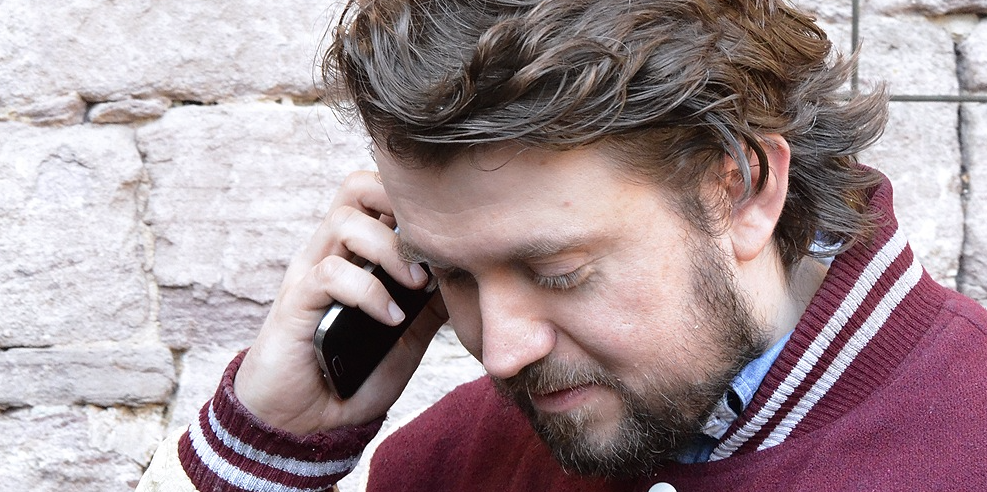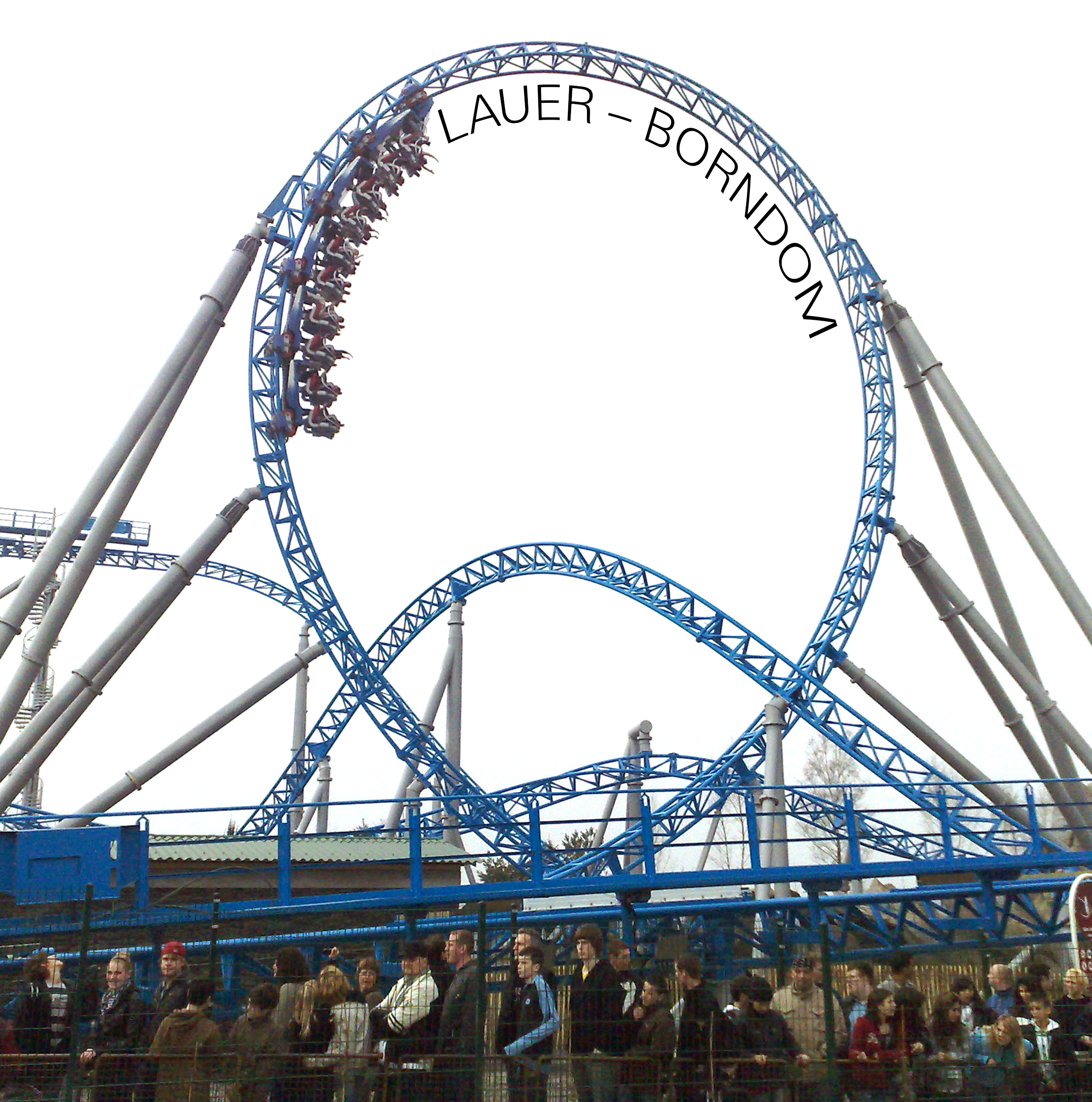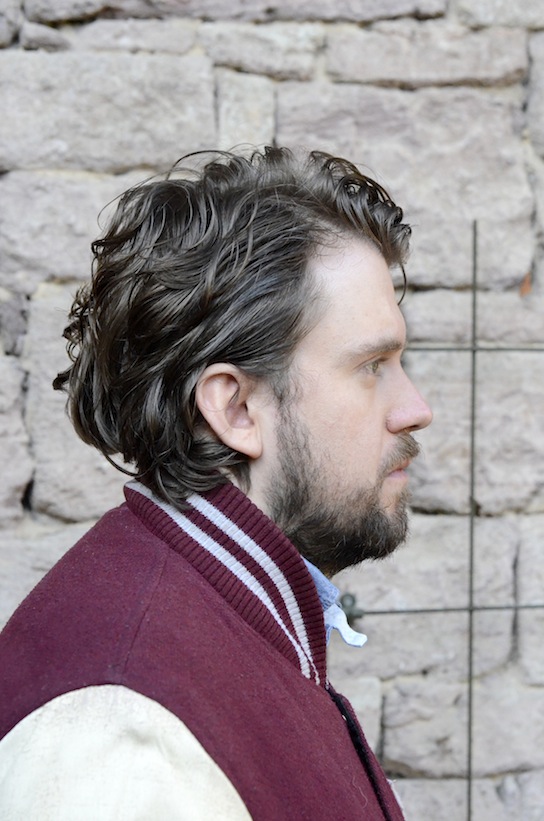Get Familiar: Lauer
His second solo album in the shops, the German producer gets his moment in the sun.

Get Familiar: Lauer
His second solo album in the shops, the German producer gets his moment in the sun.

With a career that spans more than ten years already firmly under his belt, the German DJ-producer Phillip Lauer might not seem to comfortably slot into XLR8R’s Get Familiar series. Lauer is, however, a man of many guises—and the vast majority of his previous musical work has come under a range of different monikers and collaborative projects, including Tuff City Kids (with Gerd Janson), Hotel Lauer [with his brother, Jacob] and deep-house duo Arto Mwambe. Away his production and remix duties, Lauer is a widely-acclaimed DJ and founder of Brontosaurus, the label he started with two pals in 2006 through which he puts out both his own music and that of his “weirdest musician friends.”

It is only now, however, following the release of Borndom, his impossibly infectious, just-released second full-length LP on Permanent Vacation, that he is being fully acknowledged as Lauer, the pseudonym he adopts for his solo production work. XLR8R caught up with Lauer to learn more about his early musical inspirations, production values for the album and what else 2015 has in store for him.
“I bought some cheap software to produce some music and, although it completely sucked, I just got hooked.”
With early musical influences that include hip-hop and punk rock, Lauer has been producing electronic music ever since the late ’90s. “I was a skateboard kid and I loved the videos,” he says. “I started to play in bands, and then I just kind of stumbled across some electronic music that I liked, and my interest just grew from there. I bought some cheap software to produce some music and, although it completely sucked, I just got hooked.”
His first production, under the name ���Kizz My Phillipino Azz,” was a deep-house tune mastered straight from tape and became the last catalog number of the a friend’s label, Inbetween Records. “My first release was the label’s last one,” jokes Lauer.
Although he was “definitely not taking his production too seriously at that moment,” Lauer honed his skills over time and carefully mastered his ’80s-influenced disco sound with a string of well-received releases on such labels as Séparé Recordings and Punkt Music. Remixes, too—including high-profile productions for labels as varied as Trevor Jackson’s Output and Jazzanova’s Sonar Kollektiv—steadily became a larger part of his repertoire,, creating a reputation that eventually inspired the now-dormant Arto Mwambe project with his fellow Frankfurt producer Chris Beisswenger in 2004—perhaps Lauer’s most lauded work collaboration to date.

There is a quite unmistakeable and undeniable enthusiasm in Lauer’s voice as he talks. His modern day contemporaries might become tempted by the glitz and glamor that success in music inevitably offers, but there is a sense that Lauer remains very much a musician’s musician, motivated by little more than refining his craft and a profound love for his work. “I am just trying to do my thing,” he says. “For me, it’s not a profession—it’s still just something I really enjoy and I would do it even if it didn’t pay me enough to live.” he adds. “Throughout my whole career, I have been doing it alongside my job in a distribution company—until that went bust last year. I tried to find some other things to do but it didn’t interest me, and I was already making enough money [from music] to feed my family and pay the rent.”
By seamlessly combining his love of house music and wavy disco beats, Lauer has steadily, almost unintentionally, adopted a impossibly beautiful melodic sound that’s both easily attributed to his name and reflective of his affection for ’80s and ’90s electropop music. “There is no plan behind it—it just turns out like that,” he says. “I was listening a lot to the radio when I was growing up, and I think that the tracks stuck in my head more than with other people,” he adds. “Also, I think the machines I use also give me a different sound. They are all from the ’80s and ’90s and so make very unique notes.”
Released three years following his marvelous debut solo LP, Phillips on Janson’s Running Back label in 2012, Borndom was recorded over a three month period in the quiet attic studio of Lauer’s home, near where he regularly DJs at Offenbach’s Robert Johnson club. The name, inspired by the word “boredom,” ironically reflects a lack of inspiration or vision in what Lauer was trying to produce. “I didn’t have a concept behind the album, and because there is no main theme behind it, I just wanted a really basic name. Everyone knows the word “boredom,” so that’s what I was thinking. I also think it sounds good,” says Lauer. “I was going to name it Phillips 2, but I decided to go with Borndom!”
“Although each track was finished in my new studio, I have been thinking about this album ever since I finished the last one, and so I see it as an accumulation of all the different ideas and inspirations I have collected over that time,” he says. “Over the past few years, I’ve had so many ideas for music that wouldn’t fit on a twelve because they aren’t very clubby, so I put them aside and used a lot of them in the album. As soon as I felt ready and knew I wanted to release another LP, I filtered through this big pile of stuff to find all the good ideas.”
As for the result, Borndom takes the listener on a thirteen-track trip that only Lauer could devise. While remaining true to his signature sound and showcasing further his supreme songwriting attributes, Lauer’s latest solo work exudes a greater sense of maturity, moving away from the Balearic dancefloor tracks of his previous LP in favor of a progressive journey of distinctive synth lines and minimal ’80s pop melodies, with the welcome addition of vocals. “A lot of people told me that I should add vocals so that’s what I just started to believe. I did a couple of tries where I added my vocals—but there is not yet a plug-in that can make it sound like I can sing, so I just asked some friends if they would help me”
“I do think Borndom feels more like an album, but I didn’t intend for it to sound any different [than Phillips],” he says. “However, I would say that I put more effort into Borndom. For Phillips, I wanted to see if I could finish enough tracks to make an album because I had never done it, but for for the new one, I knew I could do it so it is a lot more consciously put together.”
As for what’s to come, it’s clear that Lauer’s recent focus on his solo material is no precedent for his future intentions. For now, it’s more collaborative projects, including some new tracks with Tim Sweeney from Beats in Space and more remixes and productions from Tuff City Kids. Rest assured, however: Lauer will be back soon.

